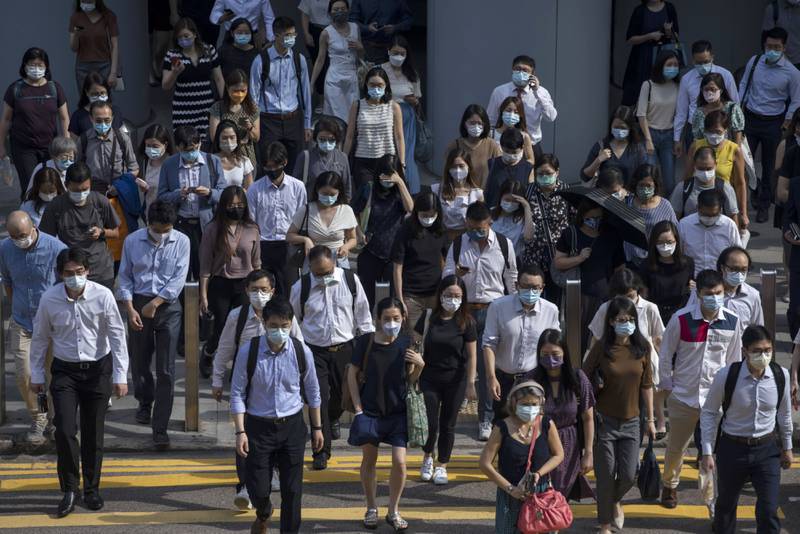Economic recovery ‘like no other’: IMF, McKinsey, OECD experts tell PCR podcast series

A crisis like no other, followed by a fast economic rebound, creating an unprecedented situation that is affecting all sectors and countries.
That is the assessment shared by some of the world’s leading business and economics experts about the post-Covid-19 economic recovery in a new podcast series by The National.
PCR, which stands for ‘Post-Covid Recovery’, is an eight-episode limited audio series featuring senior voices including officials from the IMF, OECD, McKinsey, World Economic Forum and the World Travel and Tourism Council.
The narrative style of the series allows for discussions with leading economists, to make sense of the numbers and trends. “We are not completely out of trouble, but we are on a reasonable path, I think is the way I would put it,” said Petya Koeva Brooks, deputy director in the IMF’s strategy, policy, and review department.
"There's still a lot more things to be done in order for us to feel secure about the recovery."
The Omicron coronavirus variant spreading quickly is also creating more uncertainty about the outlook. Martin Hirt, senior partner at McKinsey and Co, described the unique nature of the crisis and the recovery.
“It's very visible now that this has been a light-switch-economy type of crisis, where it has been shut down faster than any economic crisis in history. But at the same time, it almost instantly recovered when the lockdowns were ended, when people were able and willing to move around again,” he said.
The impact of the pandemic was such that the recovery is full of imbalances and disruptions in terms of jobs, trade, production, inflation and energy.
“What we're seeing already is that some of these divergences in the recovery that we're seeing in the near term, there's a risk that they translate into lasting scars,” said Ms Koeva Brooks.
According to Laurence Boone, chief economist at the Organisation for Economic Co-operation and Development, the success of the global vaccine distribution to tackle the Covid-19 pandemic is the most important and effective way to support the economic rebound.
“By a factor of 10, the most important policy is actually global co-operation, on vaccination,” she said. "The uncertainty that we're facing is coming from the fact that the global population is not vaccinated, that vaccination distribution is very uneven across countries.” Vaccinating everyone in the world would be relatively inexpensive.
"Governments have spent roughly $10 trillion to support their economy in the crisis, whereas bringing the vaccine to the entire population would cost about $50 billion,” said Ms Boone.
Certain sectors such as the key tourism industry, were recovering at slower rates than others. “Our latest projection showed that in 2021, the global economy is set to receive a modest 30.7 per cent year on year increase from travel and tourism, which is slower than expected ... that will be mainly driven by domestic spending. International spending is set to rise by only 9.3 per cent this year, but we are expecting obviously, much stronger year on year rise for 2022 in terms of international spending, of about 93.8 per cent,” said Tiffany Misrahi, vice-president of policy at the WTTC.
Ms Brooks expressed concern about the inequalities which have been accentuated by the pandemic. “So we've seen essentially the low-skilled, the young, and in some cases, the women being more affected by this crisis than others.”
Silja Baller, insights lead, frontier insights at the World Economic Forum said: “We can expect the upward wage pressures which are happening for certain jobs, at least to stay around over the medium run, then there's also an expectation that ultimately automation will again become a stronger force.”
The PCR series is also focusing on transitions, shifts and new trends emerging with the recovery.
“The entire planet gathered in Glasgow [at Cop26] to discuss climate change … committing to very high ambition levels,” said Ms Boone. “When we look at the data commitment it is high, but action is actually quite low. One of the key recommendations we're making … is that it's really time to actually address climate change, and do that in a globally co-ordinated way, so that all the actions that are taken are actually globally efficient.”
